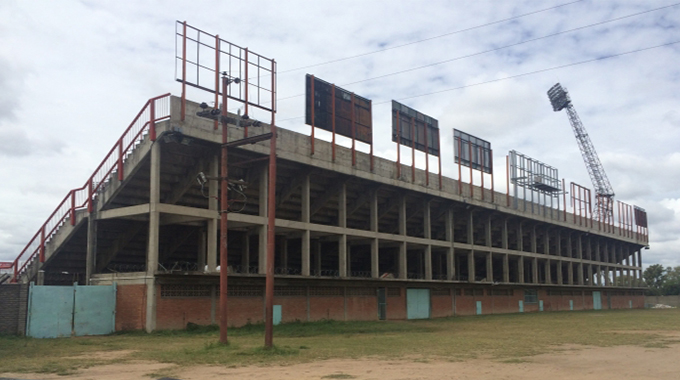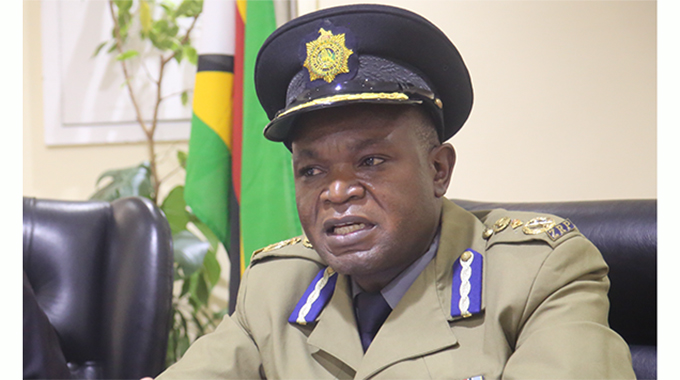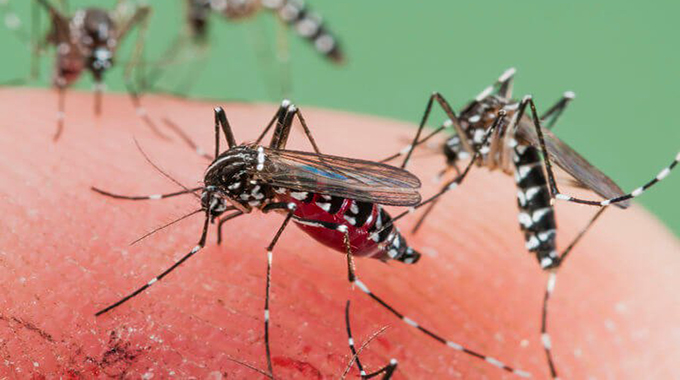Rafting guide — not for the faint-hearted

Leonard Ncube, Victoria Falls Reporter
BEING a rafting guide is not for the faint-hearted as it comes with its own hazards.
From navigating harsh rapids and waves to ensuring safety of clients, rafting guide Mr Skinner ‘‘Vodla Wezinanga’’ Ndlovu (50) has found himself with an unpalatable task of retrieving every dead and decomposed body from the Zambezi River in Victoria Falls.
Many rafting guides are scared of retrieving bodies despite their experience, but Mr Ndlovu has earned the nickname Chief of the Zambezi River because the mighty water body literally respects him.
He literally knows every rapid downstream from Victoria Falls like his own bathroom and all guides salute him, and it’s no surprise he is Rafting Association of Zimbabwe (RAZ) chairman.
He said his late grandfather nicknamed him Vodla Wezinanga meaning destroyer of big barriers; and he has destroyed the harsh Zambezi River rapids.
Mr Ndlovu said one of the traits of a rafting guide is ability to master daily changes in water levels to be able to detect shape, power and pressure of waves and rapids which change on a daily basis.
For Victoria Falls rafting guides, the job has been expanded to include retrieval of bodies.
Mr Ndlovu was 20 when he started rafting on the Zambezi River in 1990, and since then he has been involved in retrieval of bodies in Victoria Falls.

Villagers help guides carry bodies
Each year, an average two or three drown in the gorges of Victoria Falls and Mr Ndlovu has been central to their retrieval.
Ideally, police should retrieve drowned bodies through the sub-aqua unit but they outsource skills of rafting guides who are used to the fast-flowing river.
“Rafting is an amazing job and it’s not for everyone especially the faint-hearted. It’s a three-in-one job where you get paid, have fun and stay fit but you have to think safety first and always respect the river so it also respects you.
“I have retrieved many bodies since I started as a junior guide and I have lost count of them. It should be 90 percent of all that drowned on the Zambezi River in Victoria Falls. I only did not take part when I was working in Norway between 2007 and 2011 or when I was out of town. Some are Zambians who would have been swept to the Zimbabwean side,” Mr Ndlovu said.
Not all guides retrieve bodies as the job requires dedication, composure and commitment, said Mr Ndlovu.
“It’s hard work but we always take it as a challenge. We do it voluntarily as a way of ploughing back to the community and helping bereaved families. Some have been rafting guides for more than 20 years but have never retrieved a body because they are scared.
“Most bodies will be in an advanced state of decomposition because they are retrieved three to five days after drowning when they start floating. I remember one of the guides had nightmares and couldn’t sleep for the whole week and couldn’t eat meat for three months after we retrieved a decomposed body. Like I said earlier, this job is not for everyone, but once you start you will get used to it,” he said.
There are some myths about the drownings but Mr Ndlovu says he just prays for God’s protection.
“Bodies are supposed to be retrieved by sub- aqua they have partnered with us because they are not used to rapids. You need to prepare yourself for the worst. I usually talk to the crew to give them courage. We just pray and we have never performed any rituals or cleansing,” highlighted Mr Ndlovu.
The guides are not paid to retrieve bodies but do it for the love of the community, said Mr Ndlovu.
He holds a record for the fastest guide in Victoria Falls, if not the whole country after he ascended the gorge in 4 minutes 29 seconds running from the bottom of the river to the top.
Mr Ndlovu said going up the gorge is like climbing a 75-storey building and usually it takes an ordinary person between 20 and 30 minutes to get to the top.
Some people who go for rafting take even more than an hour while others end up being carried by guides because of the steep slope.
Just last month, Mr Ndlovu and his men spent four days searching for bodies of two men who drowned while swimming at Rapid Number 6 and the bodies were found floating on the fourth day about three kilometres downstream.
Last year he led a similar mission to retrieve bodies of two siblings from Chidobe who also drowned in the same river.

Rafting guides offloading bodies from a raft
Some bodies drown during high water levels when rafting activities will be dangerous.
In February last year, Mr Ndlovu led what he said was the toughest of all body retrieval missions in his career so far, when they retrieved the body of an Israeli tourist who drowned while swimming under the Victoria Falls Bridge without a life jacket despite the river being at its peak.
“This has been the most difficult mission so far. We found the body at Rapid Number 4. Rafting was closed at that time because water levels were very high and we couldn’t raft.
“We secured the body in a stretcher and with the help of the Wild Horizons high wire team, we used a gorge swing winch and ropes to pull it up to the top. All rafting equipment including the raft and crew members were pulled out using the gorge swing and this took the whole day. It was a tough assignment,” Mr Ndlovu said.
Because of his proficiency, he has represented Zimbabwe in the Carmel World
Rafting Championship held here and in Costa Rica in the years 1995, 1996, 1997, 1998 and 2006.
He also holds the record of being the first person to raft the whole of the dangerous Kafue Gorge in Zambia in the company of a Mr Eliam Mushamboza.
A team of guides from United States 1982 and 1985 failed to navigate the river which feeds into Zambezi River as the rapids were dangerous.
“In 2001 they advertised calling for brave guides and we went there. They gave us the map of the river and it was scary but a good experience. They expected us to reach the mouth of the gorge on the sixth day but we were there on the 4th day. However, I almost died at a point where there are three successive waterfalls. We were supposed to camp there and spend the whole day carrying our language bypassing the waterfall but I didn’t want to camp and sailed down the waterfall,” said Mr Ndlovu.
He retired from full time guiding on August 31, 14 years after joining Wild Horizons in 2006. He said he will still be available for freelance guiding and retrieving bodies. — @ncubeleon












Comments